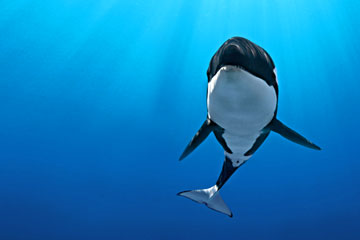
(2 of 2)
Cowperthwaite says she tried to get SeaWorld on the record in Blackfish. "I wanted them to tell me why I took my kids there," she says. "I'm complicit." The company declined. But it has hardly ignored the film. The day before Blackfish opened in limited release, an e-mail addressed "Dear Film Critic" landed in my inbox. Sent by a public-relations firm that usually promotes movies, it contained a lengthy statement from SeaWorld condemning Blackfish as "deliberately misleading and scientifically inaccurate." This unusual move may backfire by raising the film's profile: Cowperthwaite says she's heard from more outraged ex-trainers and ex-veterinarians "claiming Blackfish barely scratched the surface."
But she tells me she still hopes for a solution that involves the corporate giant. Not quite the stuff of Free Willy, but she argues that a whale like Tilikum could be moved to a sea pen--a cove with a net across it where customers could see him living within the natural rhythms of the ocean. Other whales could be rehabbed and released. She believes SeaWorld "could evolve us, single-handedly, into a new relationship with these whales. They are probably the only ones that could do it." But as she points out, the $1.46 billion-plus industry has little impetus to change as long as people keep coming through the turnstiles.
